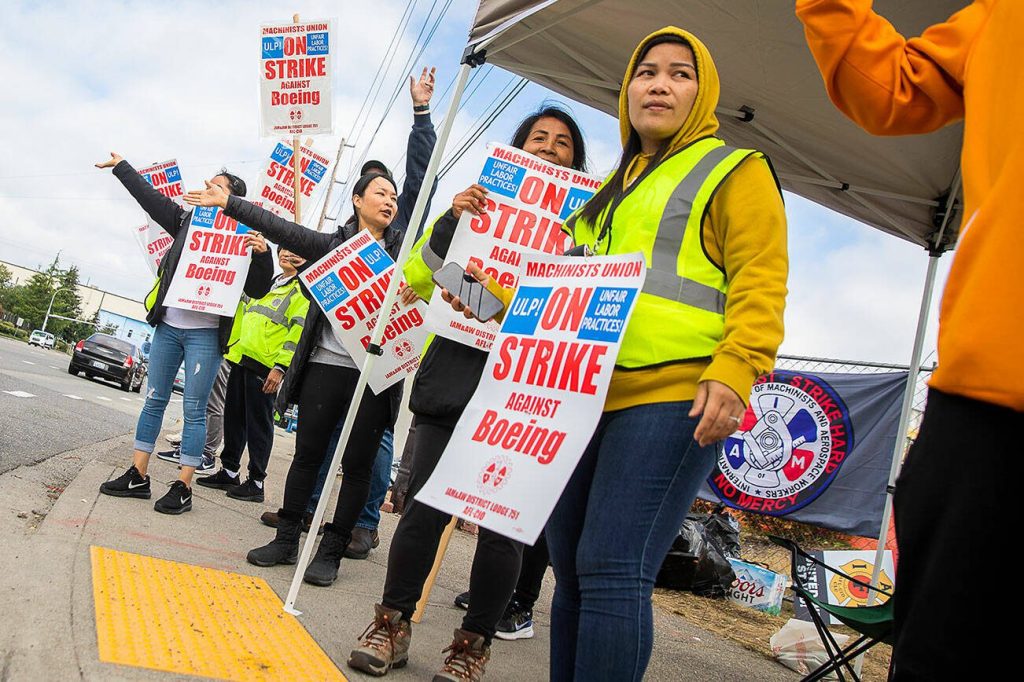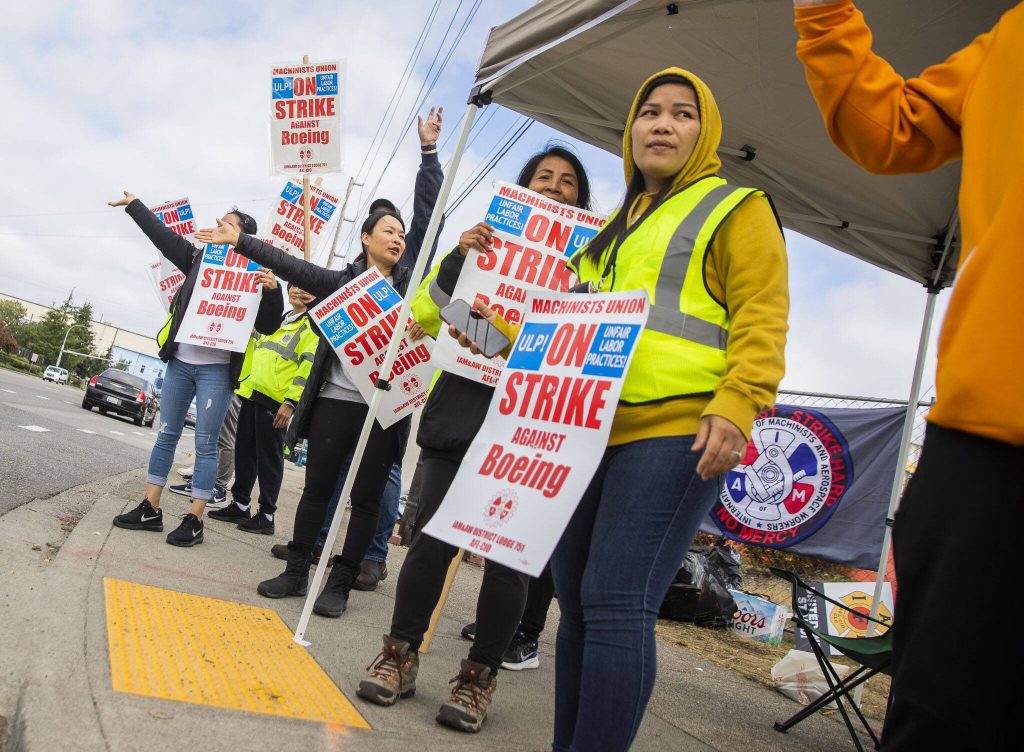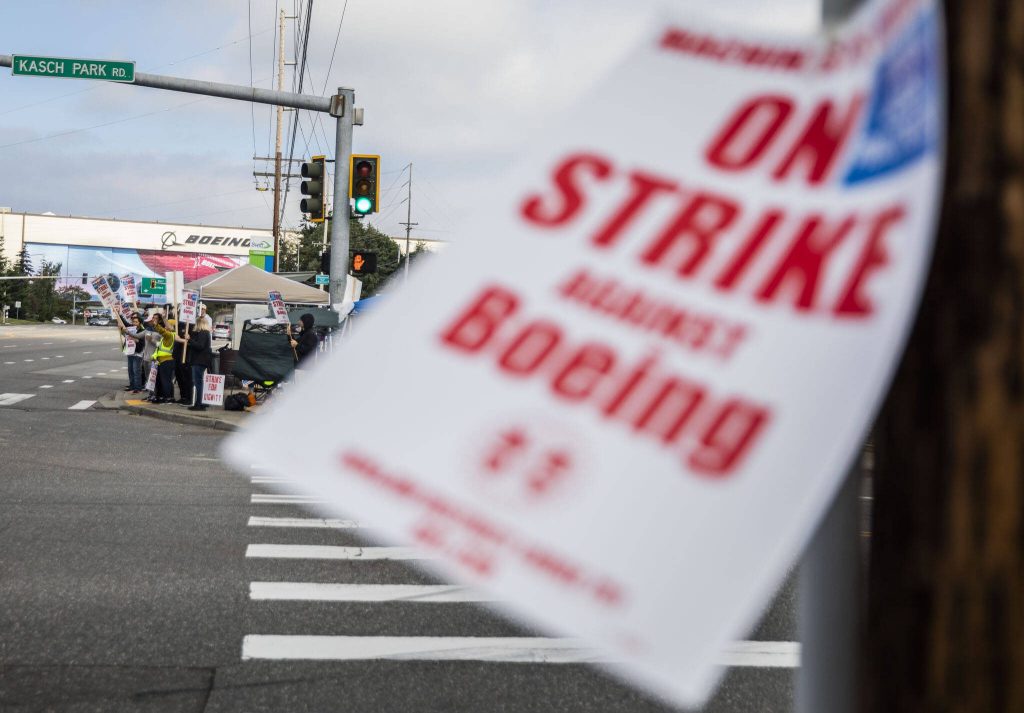Boeing at risk of junk rating amid stalling negotiations with union
Published 7:00 pm Tuesday, October 8, 2024



By Olivia Raimonde and Julie Johnsson / Bloomberg
S&P Global Ratings is looking at downgrading Boeing’s credit grades to junk, citing the planemaker’s growing cash needs as it suffers from a protracted strike by machinists.
The credit grader estimated Boeing will burn through about $10 billion of cash in 2024. The company is likely to need additional funding to meet its day-to-day cash needs and finance debt maturities, according to a statement Tuesday.
“The strike puts Boeing’s recovery at risk,” according to S&P. “We believe the company remains exposed to higher-than-expected cash usage and adjusted debt for the next year or two.”
Junk-rated companies usually face higher borrowing costs than their investment-grade counterparts. Boeing has $4 billion of debt coming due in 2025 and also $8 billion coming due in 2026, according to Moody’s Ratings, which said last month that it’s considering downgrading Boeing to junk.
Boeing has been plagued by manufacturing problems for years, and has lost money on an annual basis since 2019. This year it has faced additional pressure, most recently from a strike by 33,000 hourly factory workers that’s shut down its manufacturing across the Pacific Northwest. That walkout is costing Boeing more than $1 billion a month, even with a slew of cost-saving measures it’s put in place, S&P said in the report.
The ratings firm doesn’t expect Boeing to reach its target of producing 38 of its 737 Max jets per month until mid-2025, months after the year-end goal set by company executives.
S&P still expects Boeing to generate positive free cash flow next year, but cautioned its estimates “are increasingly sensitive to elevated costs associated with the work stoppage.”
A spokesperson for Boeing declined to comment.
The news comes as Boeing notified employees Tuesday night it had broken off talks with the International Association of Machinists and Aerospace Workers after three rounds of federally mediated negotiations.
Boeing Commercial Airplanes President Stephanie Pope told employees the strike “has deeply affected our business, our customers and our communities.”
Pope said the union did not seriously consider the company’s proposals, and for that reason, has withdrawn the latest offer.
“This is a disappointing outccome and not one we wanted,” Pope said.
In a post on X, the union said “the company was hell-bent on standing on the non-negotiated offer that was sent directly to the media on September 23, 2024.”
Leaders of IAM have pushed for 40% wage increases and for the company to reinstate a defined benefit pension plan.
“When we surveyed our members on that offer, the response was overwhelming — those who participated said it was not good enough,” the union wrote in the post.
Day 26 – Strike Update
October 8, 2024Holding the Line!
Today, we completed a second day of mediated talks with Boeing. The company was hell-bent on standing on the non-negotiated offer that was sent directly to the media on September 23, 2024. They refused to propose any… pic.twitter.com/FPFHcZWMGf
— IAM Union District 751 (@IAM751) October 9, 2024
Even one downgrade can boost a company’s borrowing costs, but two or more often make it ineligible for inclusion in the biggest high-grade corporate bond indexes, forcing many investors to sell their bonds. That usually dramatically boosts a company’s future funding expenses.
Fitch Ratings, the third of the three biggest ratings firm, said last month a prolonged strike could increase the risk of the company’s being downgraded to junk. Fitch didn’t say in September that it’s actively considering a downgrade.
Financial pressure
Boeing has faced growing financial pressure after a door-size panel blew off an airborne 737 Max 9 in early January, a near-catastrophe that brought greater scrutiny by U.S. regulators. The company was forced to slow down production of its 737 Max, its biggest cash generator, and other commercial aircraft as it worked to improve its manufacturing processes. The strike has brought production of Boeing’s cash-cow Max jetliner to a standstill for more than three weeks.
But the company’s financial strain is years in the making. In October 2018, a brand-new 737 Max 8 jet, flown by Indonesia’s Lion Air, plunged into the Java Sea. In March 2019, a second 737 Max crashed, this time in Ethiopia. The two failures killed some 346 people. Governments worldwide began grounding the jet, one of the company’s biggest sources of sales.
The pandemic, which slowed travel globally and brought many airlines to the brink of collapse, didn’t help, with the company posting a net loss of nearly $12 billion in 2020.
The losses piled up even after U.S. and European regulators cleared the 737 Max for flying again in 2020 and 2021. Boeing’s sales recovered slowly after the crashes, while its expenses stayed high.
If the strike continues toward the end of the year, a credit rating downgrade is more likely, according to S&P. S&P currently rates the company at BBB-, the lowest investment-grade level.
Herald writer Michael Henneke contributed to this story.







